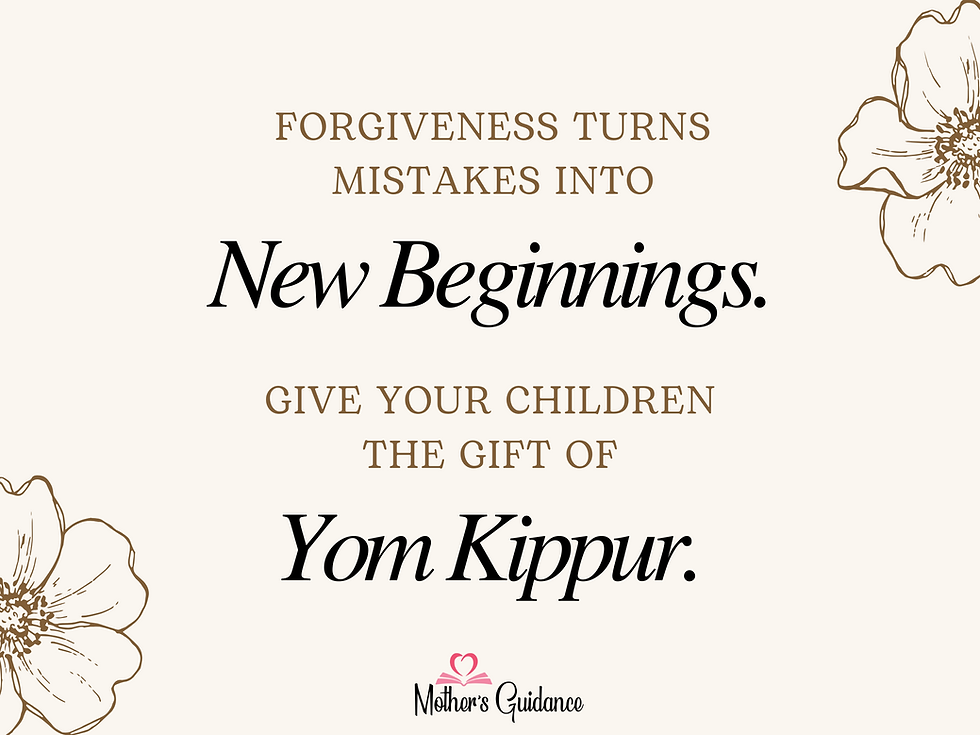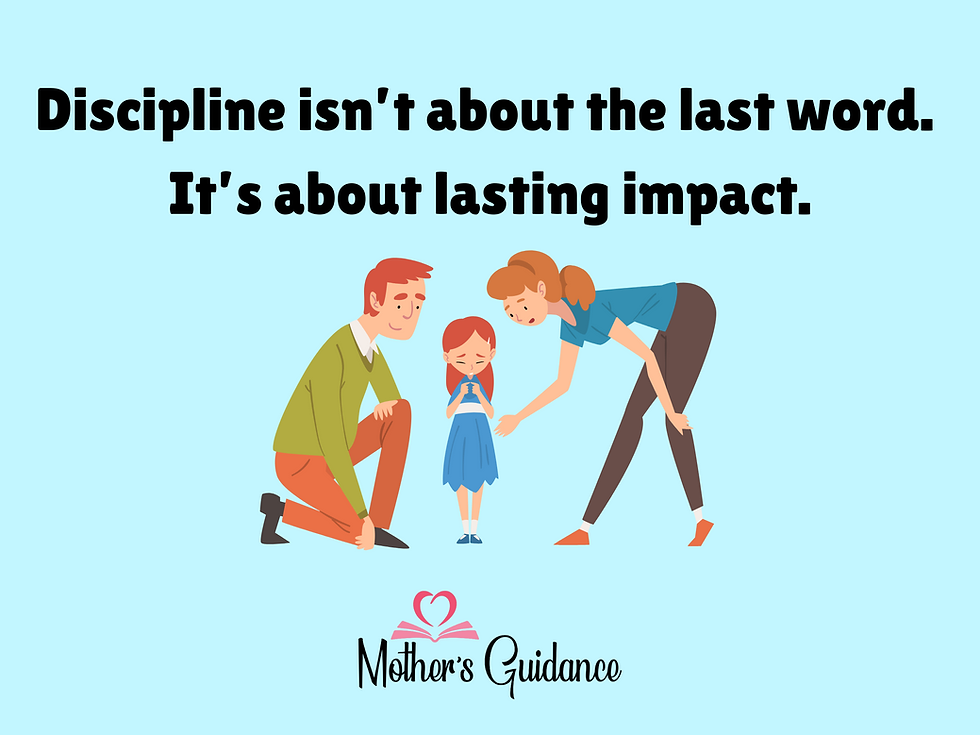Cold-Hearted or Compassionate? The Truth About Boundaries in Parenting
- Aug 21, 2025
- 3 min read
Have your children ever felt you were cold-hearted?
If you’ve never been a “Mean Mommy,” then perhaps it’s time to step into the role. 😉 All joking aside, one of the necessary challenges of parenthood is that we sometimes must do things that seem heartless and make our children unhappy.
The Torah portion of Re’eh (Deuteronomy 11:26–16:17) contains several seemingly ruthless commandments. Upon entering the land of Israel, the Jewish people were commanded to completely eradicate all vestiges of idolatry. A little further on, we read that if a false prophet arises and attempts to draw the nation away from God, he must be put to death. The apparent hard-heartedness continues with the command to execute even a family member who secretly entices a loved one to idolatry. Finally, the Torah describes a situation (which Jewish tradition teaches never actually occurred) in which an entire city turns to idolatry, and that city must be destroyed. A nation devoted to God cannot tolerate in its midst a community that betrays its very foundation. Yet in the middle of these difficult passages lies a remarkable verse:
Deuteronomy 13:18
Not the least of the banned [things] shall adhere to your hand, so that God may turn back from the fierceness of His anger, allow you to be merciful, love you with compassion, and multiply you, as He swore to your fathers.
Rabbi Samson Raphael Hirsch, Torah leader of German Jewry in the 1800s, explains that the phrase “allow you to be merciful” teaches something profound. At times we are required to act with what looks like cruelty. A person might worry that these actions will leave them permanently desensitized or hard-hearted. God promises, however, that He will restore such a person to their innate kindness and mercy. Fulfilling God’s commands, even when they appear ruthless, will not turn us into ruthless people.
This assurance is given specifically in the context of eradicating harmful spiritual influences. Protecting the nation from dangerous forces is so critical that we are commanded to act in ways that seem entirely out of character, yet we are promised that we will not lose our essential character in the process.
The same is true in parenting. There are moments when we recognize that a person or object is having a harmful influence on our child. It may be a friend or neighbor who brings out their worst behavior, or it may be social media or the internet that threatens their spiritual well-being. When we identify a true moral danger, we must place protective boundaries even if it means being labeled the “Mean Mommy” or “Disagreeable Daddy.”
Sometimes the boundary is as simple as saying that while your child’s friend is welcome in your home, you are not comfortable allowing your child to visit theirs. It may be true that the other family feels hurt, and it is equally true that we can usually find a tactful way to express ourselves. Still, their feelings cannot override our responsibility to protect our children. At other times, we may need to tell a babysitter not to use a cellphone in front of our children. Your teenage babysitter may roll their eyes, but the request is valid. And when we establish clear limits around digital devices, our children may accuse us of being cold-hearted. Yet the Torah portion of Re’eh reminds us that the greatest kindness we can show our children is protecting them from damaging influences. We cannot endanger their spiritual health for the sake of seeming agreeable or neighborly. True kindness and compassion can only flourish within healthy boundaries.
A word of caution is important here. Our children will inevitably interact with people—including beloved family members—who hold different values and are not always the best influences. That does not mean they should be cut off. In many cases, the value of the relationship outweighs the challenge, and we must work wisely and diligently to maintain the relationship while minimizing the risks. I am not suggesting family estrangement or neighborhood conflict. I am simply pointing out that appearing kind or friendly at the expense of our children’s spiritual safety is a false kindness that undermines our responsibility as parents.
If you missed the powerful webinar Parenting So Your Children Will Listen, it’s not too late! You can download the video and the note-taking guide here.
This article was originally published (with minor changes) on August 10, 2023 as "Are You Mean Mommy or Despicable Daddy?"




Comments